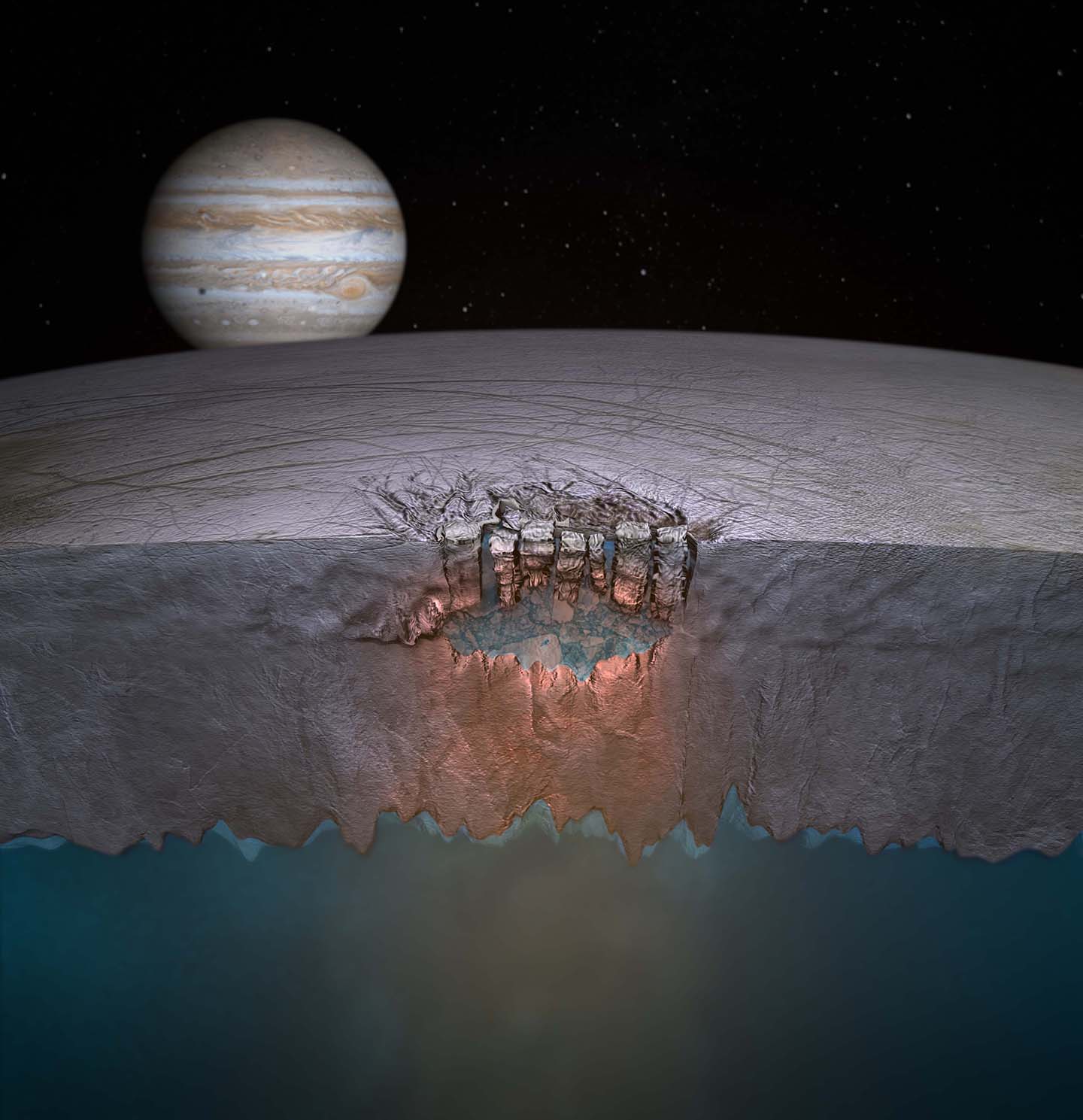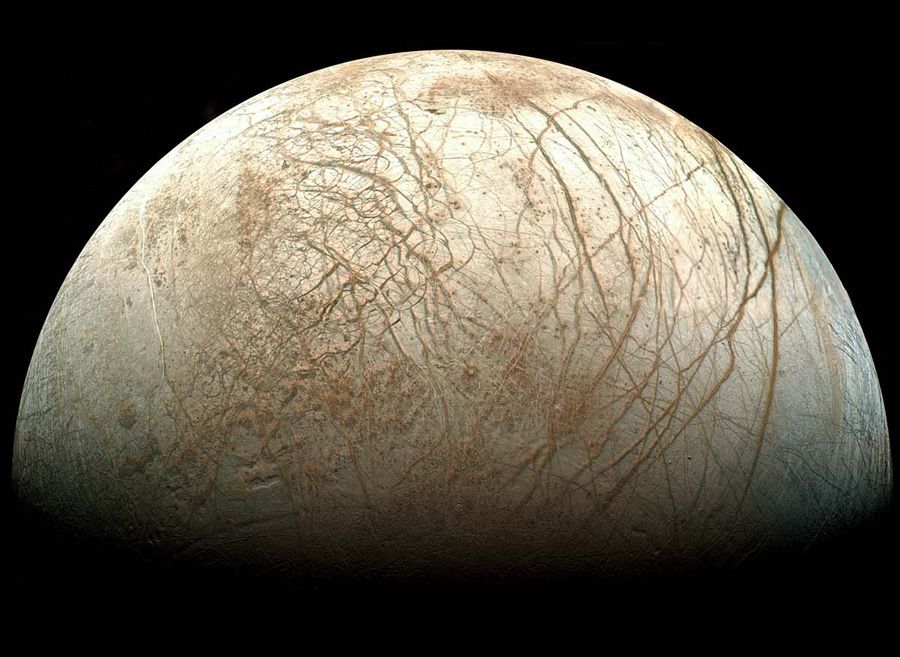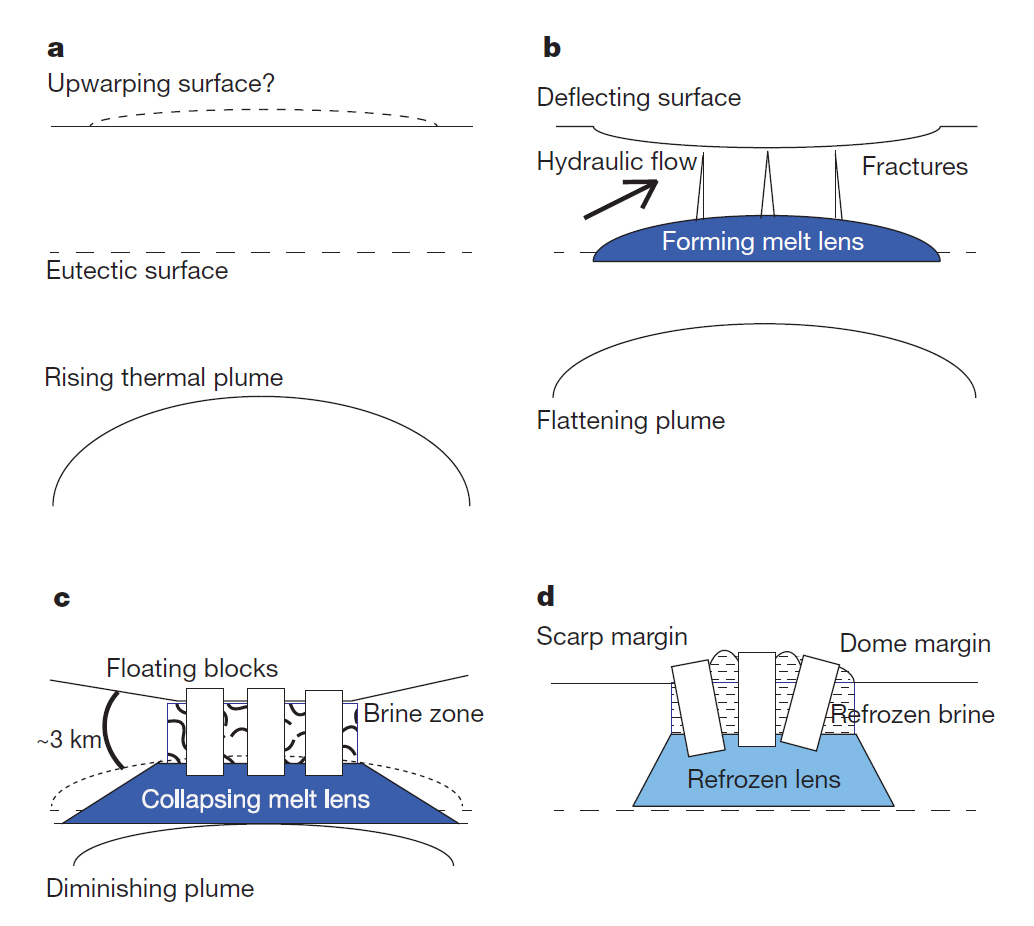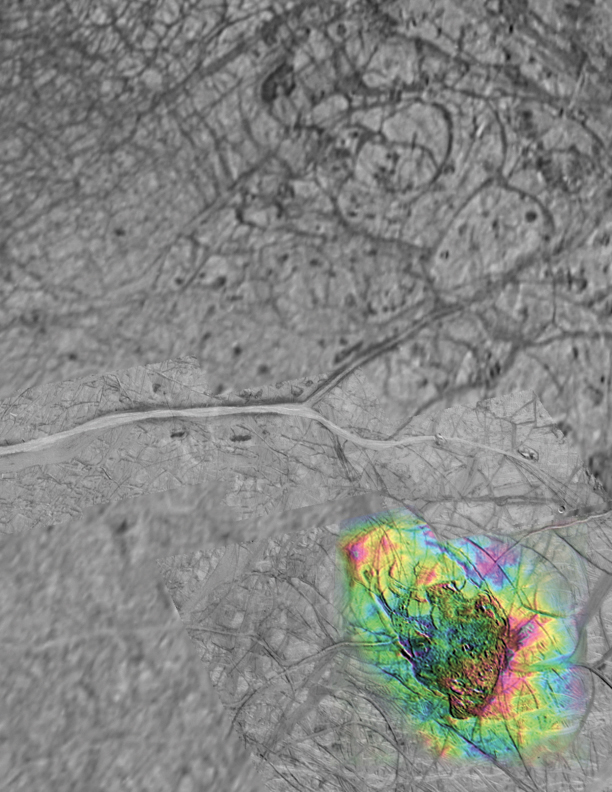Press Release
Scientists Find Evidence for Subsurface ‘Great Lake’ on Europa
Nature Paper Details Potential New Habitat for Life on Jupiter’s Icy Moon
In a finding of significance in the search for life beyond Earth, scientists have discovered what appears to be a body of liquid water the volume of the North American Great Lakes locked inside the icy shell of Jupiter’s moon Europa — which could represent a new potential habitat for life.
Many more such lakes exist throughout the shallow regions of Europa’s shell, the researchers predict in an online article for the journal Nature. Further increasing the potential for life, many of these lakes are covered by floating ice shelves that seem to be collapsing, providing a mechanism for transferring nutrients and energy between the surface and a vast ocean already thought to exist below the thick ice shell.
“The potential for exchange of material between the surface and subsurface is a big key for astrobiology,” says Wes Patterson, a planetary scientist at the Johns Hopkins University Applied Physics Laboratory in Laurel, Md., and a co-author of the study. “Europa’s subsurface harbors much of what we believe is necessary for life but chemical nutrients found at the surface are likely vital for driving biology.”



